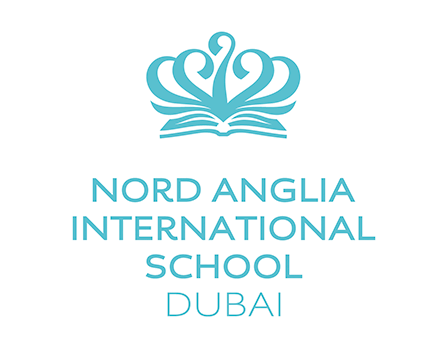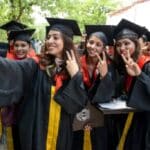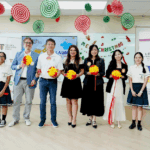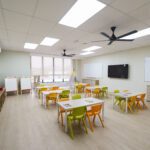Success at the Nord Anglia International School Dubai doesn’t come by luck of the draw. It’s a rigorous, meticulous, yet thrilling development process that spans the lives of students aged three to 18 — one that’s holistic in leading them to succeed in universities across the world. It’s a guaranteed journey to success, but not without hard work.
Whether it’s an expedition to Arusha, Tanzania where students helped to build a village school for the community, or the UNICEF Summit at the United Nations headquarters in New York, US. Teaching the ropes of sustainability to young kids, or implementing artificial intelligence into the classroom to stay ahead of a technological world. NAS Dubai prepares students to become global citizens who will improve the world.
The Early Years curriculum (Ages 3 to 4)
In the Early Years curriculum at NAS Dubai, children are encouraged to do what they do best: play. In this primitive phase, the act of playing breeds the grounds for exploration and character-building. NAS Dubai adopts the British Early Years Foundation Stage framework, which focuses on developing these seven areas: communication and language, physical development, personal, social, and emotional development, literacy, maths, understanding the world, and expressive arts and design.
No matter how young, students at NAS Dubai learn to take the lead in their activities. They develop their language skills through the Read Write Inc phonics programme, and learn the associations between sounds and letters. They experience music, drama, and dance through NAS Dubai’s collaboration with the Juilliard School, a world-renowned conservatory for the performing arts. They get active through a range of outdoor activities, and get their global mindset rolling with numerous language classes.

NAS Dubai is one of 80+ premium schools in the Nord Anglia Education system. Source: Nord Anglia International School Dubai
The Primary curriculum (Ages five to 11)
Just because students are phasing out of the dedicated years to “play” doesn’t mean learning becomes less fun. The Primary curriculum raises the stakes for academic learning, but it keeps students just as stimulated as before. From a young age, they’re prepped and primed to become global citizens with the integration of sustainability into the curriculum from years four to six.
Following the English National Curriculum, the primary years are structured into two key stages: lower and upper. In the lower years, students undergo a rigorous curriculum that ranges English, maths, science, Arabic languages, geography, history, art and craft, music, physical education (PE), health education, and information and communication technology (ICT). In the upper years, they develop a more in-depth understanding of the subjects through hands-on learning experiences in NAS Dubai’s specialist facilities, with its specialist teachers. Alongside the subjects mentioned above, upper year kids build new skills in design, innovation, computing, and enterprise (DICE).
The Secondary curriculum (Ages 11 to 16)
From a child into a young adult, students start to find their footing as global citizens in their secondary years. They gain not only an understanding of how the world works through experiential learning opportunities beyond the classroom, but a better idea of their interests too.
Secondary students challenge themselves through Enrichment Activity Programmes (EAPs) like the vigorous Duke of Edinburgh International Award. They engage in community work on service trips overseas to countries like Malaysia, Tanzania, and Nepal, and extra-curricular clubs which includes various sports. Science, technology, engineering, art, and maths (STEAM) students explore hands-on research with renowned researchers and academics at the Massachusetts Institute of Technology (MIT).
Academics-wise, secondary students undertake rigorous training in preparation for an academic milestone: the IGCSE examinations. In year eight — having taken the first two years of classes like Arabic, history, the DICE curriculum, geography, and more in secondary — students select their IGCSE subjects before starting year nine.

In 2024, 40% of students in the IBDP held a B score — 45 being the perfect score. Source: Nord Anglia International School Dubai
Sixth Form (Ages 16 to 18)
Over a decade of learning culminates into these final two years in Sixth Form, where students take one of two pathways to enter university: A-levels, or the International Baccalaureate Diploma Programme (IBDP).
In both programmes, students personalise and tailor their courses to suit their own academic pursuits. Students in the A-levels take on four AS-level subjects in year 12, then transition into year 13 with the option of taking three. In IBDP, they’ll undertake three core elements alongside six specialised subject areas.
Either way, they’re guaranteed to find the kind of success that would lead them to the most prestigious universities in the world. Across A-Levels, IBDP, and IGCSEs, students at NAS Dubai hold a 99% pass rate. They’re carrying that success across the continents as they step into the real world, to universities like Trinity College Dublin, Stanford University, the National University of Singapore, and several others.
Become a part of Nord Anglia International School Dubai’s global community today.













